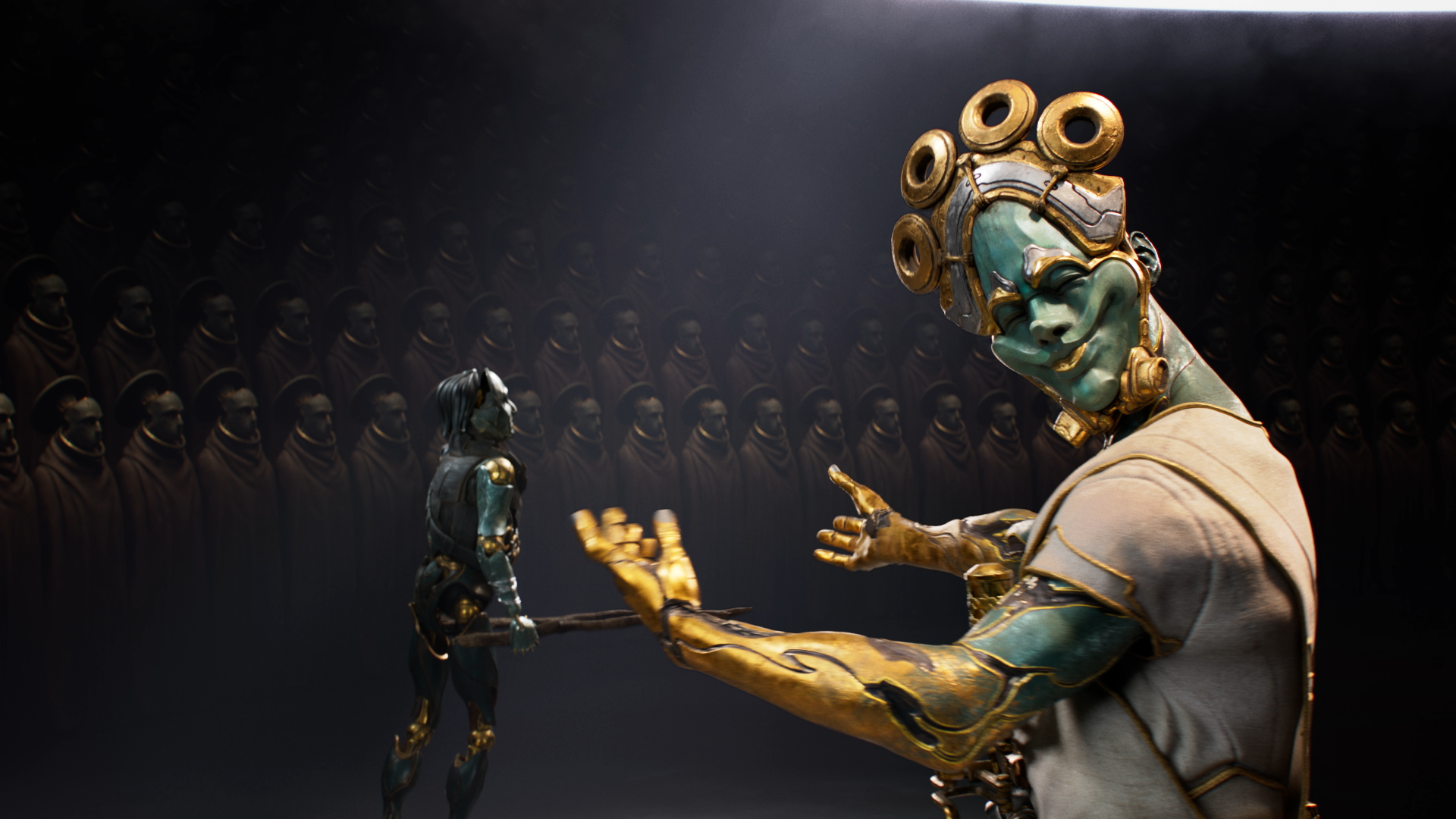Publishers 'eject too soon' on their live service games, says Warframe developer's CEO: 'It comes out, doesn’t work and they throw it away'
The live-service bin grows only heavier.

Keep up to date with the most important stories and the best deals, as picked by the PC Gamer team.
You are now subscribed
Your newsletter sign-up was successful
Want to add more newsletters?

Every Friday
GamesRadar+
Your weekly update on everything you could ever want to know about the games you already love, games we know you're going to love in the near future, and tales from the communities that surround them.

Every Thursday
GTA 6 O'clock
Our special GTA 6 newsletter, with breaking news, insider info, and rumor analysis from the award-winning GTA 6 O'clock experts.

Every Friday
Knowledge
From the creators of Edge: A weekly videogame industry newsletter with analysis from expert writers, guidance from professionals, and insight into what's on the horizon.

Every Thursday
The Setup
Hardware nerds unite, sign up to our free tech newsletter for a weekly digest of the hottest new tech, the latest gadgets on the test bench, and much more.

Every Wednesday
Switch 2 Spotlight
Sign up to our new Switch 2 newsletter, where we bring you the latest talking points on Nintendo's new console each week, bring you up to date on the news, and recommend what games to play.

Every Saturday
The Watchlist
Subscribe for a weekly digest of the movie and TV news that matters, direct to your inbox. From first-look trailers, interviews, reviews and explainers, we've got you covered.

Once a month
SFX
Get sneak previews, exclusive competitions and details of special events each month!
While you might be sick of all the live service games that swarmed us last year, there's every chance you've played at least one one for a substantial amount of time—Fortnite, Destiny 2, Apex Legends—these games are popular for a reason.
The fact remains that if a company can find the golden goose, it'll be set for years if not decades. This has led, however, to a ton of otherwise promising games signing their own death warrant—Suicide Squad: Kill the Justice League is this year's prime example. If they don't perform well immediately, they'll shut their doors months later—years, if they're lucky.
Digital Extremes (Warframe) CEO Steve Sinclair argues in an interview with VGC, however, that companies are too quick to pull the ripcord if their games don't do gangbusters on release: "They think the release is make or break, and it’s not. They have a financial way to be persistent, and they never do it … It comes out, doesn’t work and they throw it away."
Sinclair seems to argue that most live service games, namely those backed up by huge publishers, can probably have their ship steered away from the iceberg, stating it's a "shame when you put so many years of your life into iterating on those systems or building technology or building the start of a community, and because the operating costs are high, you get terrified when you see the numbers … We’ve seen this with amazing releases that I think have massive potential, and I think they eject too soon."
When it comes to the tragedy of a live service bomb, you'll hear no argument from me. I don't think Suicide Squad is some put-upon underdog or anything, and I certainly don't feel bad for a publisher with deep pockets stepping on a rake. I do, however, feel bad for the people who put the thing together. Every game takes a ton of hard work to make, even if the result isn't great.
I will, however, quibble a little bit here. Warframe is absolutely a success story, cementing its place in the live service market after a long period of uncertainty. As then studio manager, now chief operating officer Sheldon Carter told Polygon back in 2018, "There were a few of us that would look at the numbers every morning and see if we could afford to keep everyone on staff with this project, and it was every morning".
You could make the argument—one I won't ascribe to Sinclair here, at the risk of putting words in his mouth—that larger publishers have a bigger parachute to give it a go. Warner Bros. lost $200 million on Suicide Squad: Kill the Justice League, but it had that money to blow in the first place. It's not ideal, but I somehow don't think ol' WB is going down because of this.
Keep up to date with the most important stories and the best deals, as picked by the PC Gamer team.
On the other hand, these companies are shackled to the expectations of shareholders. No executive in their right mind is going to stroll into a meeting and say: 'Hey guys! We beefed it, but maybe we should put more money on red 'cause I think this next spin's gonna hit.'
There's also the fact that two live-service blowouts did actually try to do this, and it didn't pan out. Marvel's Avengers had content updates for two years, while Exoprimal received four seasons—headed up by Square Enix and Capcom respectively. The size of those publishers, and the considerable effort put into keeping them afloat, did nothing to save either title.
Live Service games are, ultimately, just a high-stakes gamble that's nonetheless so lucrative it still pays off to try—and that, to me, is more of a problem. It's the kind of Embracer-tier irresponsibility that has led to every publisher going 'we could make a Destiny, it can't be that hard' with the same optimism as a very drunk guy about to fail a backflip. I'm glad things have worked out for Warframe, but its success story is just as much of an anomaly as something like No Man's Sky was—admirable, but not a sound strategy writ large.

Harvey's history with games started when he first begged his parents for a World of Warcraft subscription aged 12, though he's since been cursed with Final Fantasy 14-brain and a huge crush on G'raha Tia. He made his start as a freelancer, writing for websites like Techradar, The Escapist, Dicebreaker, The Gamer, Into the Spine—and of course, PC Gamer. He'll sink his teeth into anything that looks interesting, though he has a soft spot for RPGs, soulslikes, roguelikes, deckbuilders, MMOs, and weird indie titles. He also plays a shelf load of TTRPGs in his offline time. Don't ask him what his favourite system is, he has too many.

